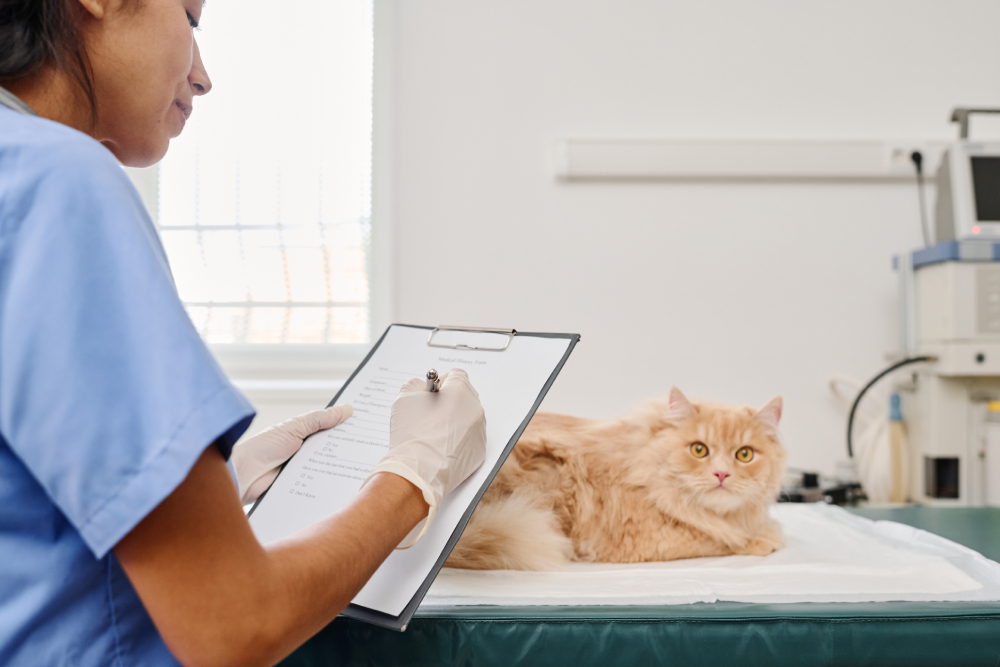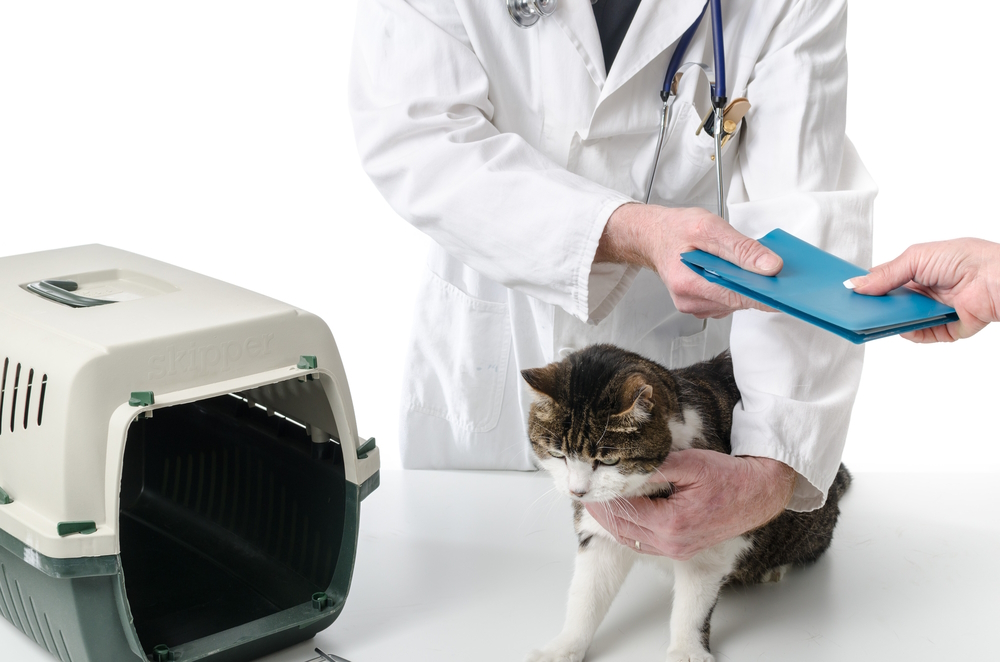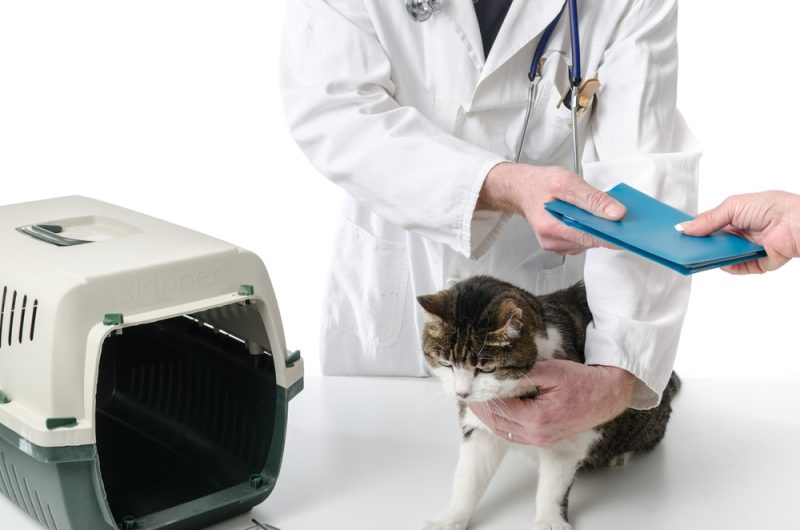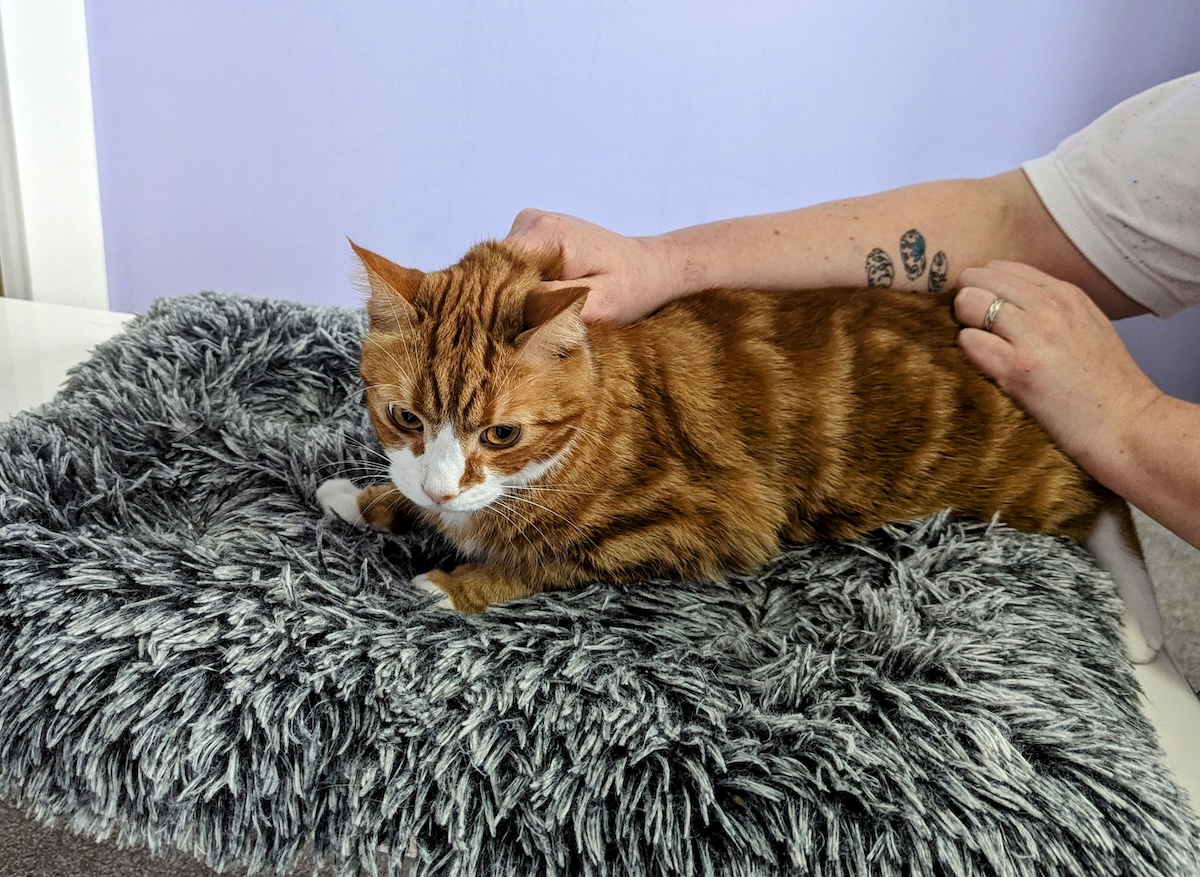Whether you’re looking to move your cat to a new vet, are signing up for pet insurance, or just want to take a look at your cat’s medical records for yourself, there’s a lot of valuable information in their vet records.
Vet records are a quick and easy way for a vet to see exactly what’s going on with your cat and make informed and accurate medical decisions for them. But what exactly do these include and why do you need to keep them? Let’s find out.

What Does a Cat’s Vet Record Include?
The exact information in your cat’s vet records will vary depending on their medical history, but there are a few standard things you should expect.
- Breed, weight, height, and age
- Drug and food allergies
- Vaccine history
- Information on any vaccine reactions
- Medication history
- Surgery history
- Laboratory reports
- Flea, tick, and heartworm prevention and history
- Potential handling instructions
- Any current or previous medical conditions
If your cat has any other relevant information surrounding their health or care you should be able to find this information in their vet records too.

Should You Keep a Copy of Your Cat’s Vet Records?
Yes! A licensed vet should keep a history of your cat’s vet records, but that doesn’t mean you shouldn’t keep your own copies at home. Your copies won’t look like exactly what your vet has on hand unless you request them, but by keeping all the documentation they hand over, you should have a pretty comprehensive guide of your cat’s entire medical history.
Are Pet Vet Records Confidential?
Yes, pet records are confidential, and your vet cannot share them with the public or with other vet clinics without your consent. Other reasons a vet might need to share your cat’s record include a court order or a subpoena.
It’s also important to note that HIPAA (which protects the rights of people’s medical records) does not apply to vets. However, many states have passed their own laws, so you’ll need to dive into the exact laws of your state to see what a vet can and can’t legally share.


Do Pet Insurance Companies Require Vet Records?
It depends on the pet insurance company you go with, but it’s common for pet insurance companies to request your cat’s pet insurance records before insuring them. If you are unable to provide the necessary vet records, the insurance company might require a visit to a vet before insuring them.
What to Do if You Don’t Have Your Cat’s Vet Records
If you don’t have your cat’s current vet records and you need them, there are a few things you can do. Start by reaching out to their vet to see if they can provide you with any of the information.
If you don’t have access to the vet, speak with their previous owner or shelter to try and track down any information they might have about their previous veterinary care or if they have any of the records.
If you can’t track down any additional information, don’t panic. You’ll need to schedule a new patient appointment for your cat at the vet, and then you’ll need to provide them with any information you have.
If you don’t have any information to give them, they’ll start building their new vet records from the first appointment!


Final Thoughts
Just like it’s important to keep track of your medical records, it’s important for you to keep track of your cat’s. It’s not the end of the world if you don’t have anything to work with right now, but start keeping track of their records for future appointments. That way, you’re not spending extra money on repeat blood work, vaccines, or other treatments in the future.
Featured Image Credit: thodonal88, Shutterstock











